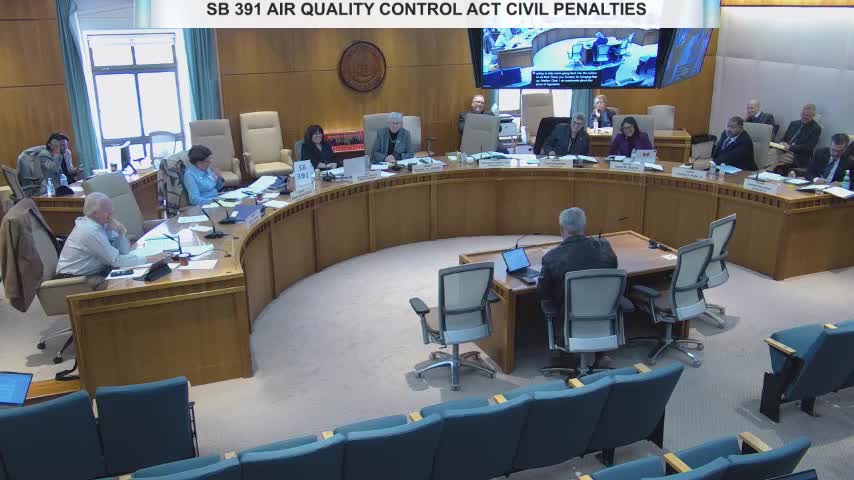Committee approves pathway for certified equine dental technicians; Senators back due pass
Get AI-powered insights, summaries, and transcripts
Subscribe
Summary
Senate Bill 412 would allow licensed and registered certified equine dental technicians to provide routine equine dental maintenance in New Mexico under a veterinarian-client-patient relationship and a certification pathway; the committee returned a unanimous do-pass recommendation.
A Senate committee gave unanimous approval to Senate Bill 412, which would create a statutory pathway allowing certified equine dental technicians to perform routine dental maintenance on horses when licensed, registered and operating under a valid veterinarian-client-patient relationship.
Sponsor Senator Ezell said the bill addresses an emerging gap caused by a shortage of large-animal veterinarians and said licensed, certified technicians could increase access and animal-welfare outcomes. Wayne Needham, identified as president of the International Association of Equine Dentistry (IAED), testified that IAED certification involves extensive training and experience. Needham told the committee the IAED requires hundreds of hours of training and hands-on case experience and 12 hours of continuing education annually; he said certification and state recognition in other major horse states allows practitioners to obtain liability insurance and work cooperatively with veterinarians.
Zachary Rhodes, identified online as an IAED-certified equine dentist, also testified in support and said technicians operate under prescriptions issued by veterinarians; committee testimony emphasized that sedation for routine floating is a standing sedation administered under veterinary prescription and that technicians generally work in direct communication with a supervising veterinarian.
Senators asked technical questions about sedation, monitoring and worst-case outcomes; witnesses said the procedures use standing sedation, the animals remain monitored and a supervising veterinarian is available for complications. Supporters argued legalization improves animal welfare, expands access in underserved rural areas and addresses workforce shortages in large-animal veterinary care.
Senator Townsend moved and Senator Charlie seconded a do-pass recommendation; the committee returned a unanimous do-pass and will consider text and possible amendments as the bill proceeds.
